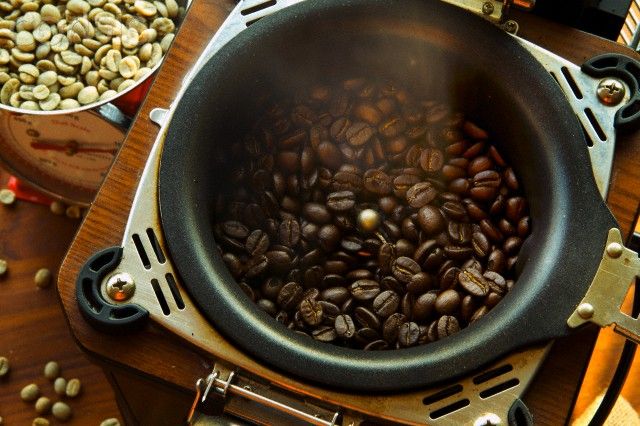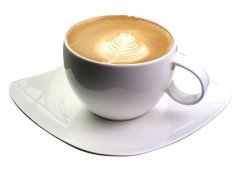How much does a cup of coffee cost?

Pickers are shuttling through coffee plantations on the outskirts of San Jose, Costa Rica, picking coffee beans into the "Cajuela" hanging on their chest.
In Central America, the main coffee producing area of the world, "Cajuela" is both a coffee basket and a recording unit. Pick a "Cajuela" (15kg) coffee beans for $2.
Although this is not enough to buy the cheapest cup of coffee at Starbucks in San Jose, it is the highest bid in Central America. Every year during the harvest season, a large number of workers from neighboring Nicaragua come to Costa Rica to specialize in coffee picking. In their hometown, $2 is almost a day's income.
In our usual understanding, coffee represents a culture and way of life. Balzac drank 50,000 cups of coffee in his life and completed the masterpiece "Human Comedy", "I am not at home, in the coffee shop; not in the coffee shop, on the way to the coffee shop" has become a famous saying; Van Gogh's masterpiece "Open-air Cafe at Night" is based on a cafe he visited when he lived in the small French city of Arles. Bach even wrote a special song "Coffee cantata" to cheer up the cafe in Leipzig.
But the other side of history tells us that coffee is not only a culture, but also closely related to wealth and capital. In 1773, the London Stock Exchange was born at the Jonathan Cafe; in 1817, a group of traders drafted a charter at the Donty Cafe on Wall Street, giving birth to the New York Stock Exchange; and the collapse of American coffee prices in 1880. it directly gave birth to the birth of the New York Mercantile Futures Exchange and ushered in a new era of coffee as a speculator.
Since its discovery in the 6th century AD, coffee has become the most consumed by human beings besides water: more than 1 billion people around the world drink coffee every day, and coffee beans are the second most traded commodity in the world after crude oil.
Today, the coffee industry is a big business worth 80 billion dollars a year. However, 25 million coffee growers around the world, who are on the front line, have not benefited much from this cake. A coffee bean can change hands up to 150 times from picking it into Cajuela to turning it into an espresso. 55% of the profits are taken away by coffee giants such as Nestl é, Kraft, Sally and Starbucks, while retailers and exporters earn another 35%, while farmers who sweat in the coffee garden earn no more than 10%.
This is only an ideal calculation.
In 2013, when Brazilian coffee farmers set fire to plummeting coffee beans, Starbucks was raising prices, citing rising costs, but the price of a cup of caramel macchiato was more expensive than three pounds of coffee beans; in 2014, Brazil suffered a rare drought and many coffee farmers lost their crops, while the price of coffee beans on the New York Futures Exchange nearly doubled.
If you look at the price chart of coffee futures in New York, you will find that it is like the ECG of a person with heart disease: the price of coffee beans today is less than half what it was in 1977. The bottomless collapse and rise has become the norm in the 134 years since it was traded as a futures. Businessmen have made a lot of money, but farmers often lose all their money.
"Coffee is the greatest pleasure. Coffee is sweeter than wine." in Bach's music, coffee is eulogized. For ordinary people, it is a mellow drink that tastes bitter first and then sweet, which makes people feel happy; for businesses, no other kind of agricultural product brings such huge profits, of course, it makes people happy.
But what does coffee bring to millions of coffee growers?
Important Notice :
前街咖啡 FrontStreet Coffee has moved to new addredd:
FrontStreet Coffee Address: 315,Donghua East Road,GuangZhou
Tel:020 38364473
- Prev

Instant coffee, take it easy. Drinking coffee doesn't cause cancer.
A few days ago, an article titled "Instant coffee should not be drunk, carcinogens are more than smoking" spread on the Internet. Instant coffee is said to be highly carcinogenic, containing concentrations of acrylamide, a carcinogen, even higher than cakes, French fries, potato chips and cigarettes. Ruan Guangfeng, an expert at the Food and Nutrition Information Center, said that this statement is a typical logical trap. There is no food in the world that can be described as
- Next

A few reminders to drink coffee after breakfast
Full-bodied coffee has been accepted by more and more Chinese people, but can you really drink coffee? Taiwan "Kang"
Related
- Beginners will see the "Coffee pull flower" guide!
- What is the difference between ice blog purified milk and ordinary milk coffee?
- Why is the Philippines the largest producer of crops in Liberia?
- For coffee extraction, should the fine powder be retained?
- How does extracted espresso fill pressed powder? How much strength does it take to press the powder?
- How to make jasmine cold extract coffee? Is the jasmine + latte good?
- Will this little toy really make the coffee taste better? How does Lily Drip affect coffee extraction?
- Will the action of slapping the filter cup also affect coffee extraction?
- What's the difference between powder-to-water ratio and powder-to-liquid ratio?
- What is the Ethiopian local species? What does it have to do with Heirloom native species?

